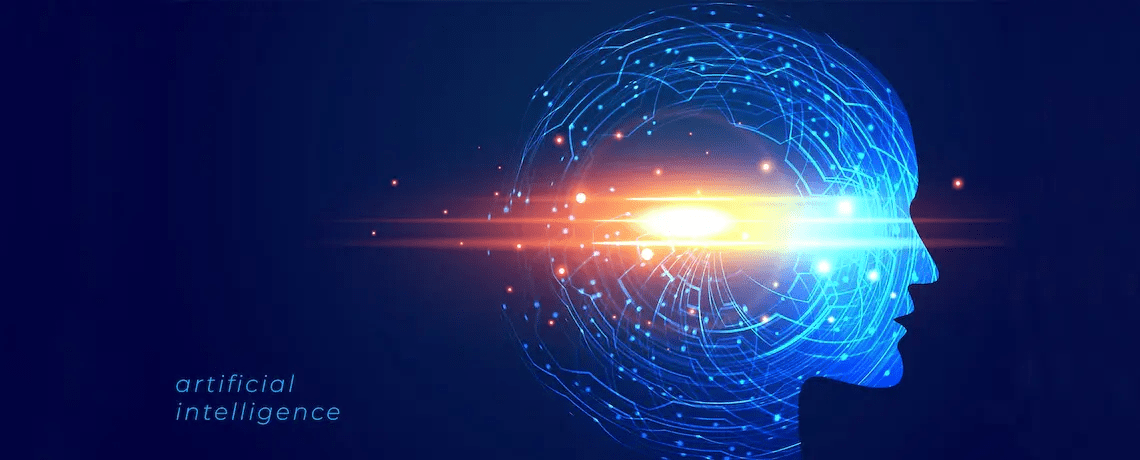Solving Global Challenges with Microscopic Solutions: The Power of Bio-Tech Synergy

Water levels are falling, heatwaves are stretching longer, antibiotics are beginning to fail and more than 800 million people still go to bed hungry each night. The 21st century has made one thing very clear: the systems we’ve depended on, our food chains, health systems and industrial models, are not enough to solve the scale or speed of today’s global challenges.
This is where the collaboration of biology and technology, ‘The Biotechnology’, steps in not as an alternative, but as a necessity. It brings scale, speed as well as specificity qualities that today’s global problems demand.
Biotech offers a systems-level response to challenges that are both global and urgent. It is now taking the centre stage to tackle problems from finding a cure for dangerous diseases to producing high-yield crops. The tools of biotechnology may be microscopic, but the outcomes are massive.
The constant growth in biotech solutions and its increasing demand has introduced a new form of economy – The Bioeconomy.
According to a press release of PIB, India’s bioeconomy was just $10 billion in 2014, became $165.7 billion in 2024 and is expected to reach $300 billion by 2030, with a 17.9% growth. Its contribution to GDP has reached 4.25%, and with it, the sector’s influence now spans policy, industry, research and workforce development.
What was once a specialised field has become foundational. The conversation is no longer about whether biotechnology matters. It’s about how deeply we integrate it into the solutions the world urgently needs.
Reinventing Global Healthcare with Biotech: From Disease Detection to Personalised Cures
Diseases today don’t always knock on the door first. They spread fast, change form and slip past standard defences.
Biotech solutions in healthcare are proving vital to understand the behaviour of diseases, the biology of the cause (understanding the biology of the virus or bacteria causing the problem), develop solutions, and in the end, produce them on a large scale for mass treatment.
Here are some of the examples:
- mRNA vaccine platforms helped stop COVID-19 faster than any vaccine before. India rolled out genome sequencing labs to support rapid tracking of variants and focus on studies related to COVID-19, powered by biotech.
- CRISPR gene editing is not just a buzzword. It’s cutting out faulty genes linked to disorders like sickle cell disease, offering real chances at lifelong treatment.
- Biosensors now detect early signs of conditions like cancer, sometimes before symptoms even begin.
Biotechnology is also solving global challenges in diagnostic deserts – places without lab access or enough doctors.
Startups and research groups have rolled out:
- Low-cost, paper-based test strips for infections
- Mobile labs that run DNA tests in remote districts
- AI-backed imaging tools for rural clinics
Each solution gives a new level of access. And with it, the chance to prevent, not just treat, the disease.
How Biotechnology Is Reshaping Sustainable Agriculture
The combined population of the world has already crossed the 8 billion mark in the year 2024 and it is rapidly heading toward 10 billion (expected to hit the mark in the year 2058). But, land, water and other necessary resources are limited, and in fact, many of them are gradually being depleted.
The food and water scarcity is not a hidden problem. The constantly increasing pollution is not an unknown fact. And, all these causes are creating multiple kinds of problems for humankind.
So, what’s the solution?
Well, the field of biotechnology has raised its hand to encounter some of the existing problems and one of those is providing a solution to feed the whole world.
- Biopesticides and biofertilisers
- Genetically modified (GM) crops
- Lab-grown or plant-based proteins
These examples illustrate how biotech can address multiple problems simultaneously.
How Industrial Biotech is Contributing to Fighting Climate Problems
Industrial biotech is working to address global issues concerning pollution, carbon emissions and resource limitation. It is primarily focused on processes that produce less waste, consume less energy and harness nature rather than working against it.

Biotech isn’t only about what we make. It’s also about how we make it. The concept of the 3Rs, “Reduce, Reuse, Recycle”, has taken on new meaning in labs and factories that follow biomanufacturing protocols.
- Reduce energy and water use with smart fermentation systems.
- Reuse biomass waste to create value-added materials.
- Recycle carbon and nutrients through biological loops.
Industrial biotech does not only clean up messes, but at the same time, it also creates fewer messes to start with.
Reimagining Epidemic Preparedness and Clean Energy Through Biotechnological Breakthroughs
Health crises don’t stay local, climate issues ignore borders and energy shortages stall economies. Biotechnology is stepping up here, not just to patch holes but to reset systems.
Biotech solutions for epidemic response:
- Modular vaccine platforms can now be adapted quickly for new diseases.
- Rapid antigen kits built with synthetic biology offer results within minutes.
- AI-trained diagnostic tools read CT scans or blood patterns faster than lab staff.
All these were seen during COVID-19. And many stayed in use afterwards.
Low-cost and easy-to-use diagnostic kits (based on biotechnological tools) are already being deployed in rural health centres. They help in the early detection of diseases such as dengue or typhoid, leading to saving lives at remote places where hospitals are far away.
Biotech solutions for sustainable energy:
- Algae farms are producing bio-hydrogen, a clean fuel alternative.
- Microbial fuel cells turn waste into power – small scale, but effective in remote settings.
- Enzymatic reactions are replacing energy-heavy methods in chemical industries.
India’s Strategic Push for Bioeconomy and Current Position in the World
India is no longer just part of the global biotechnology race; it’s helping set the pace.
As per PIB, India contributes nearly 60% of the world’s vaccine production and is home to the second-highest number of USFDA-approved manufacturing plants outside the US.
Some indicators of India’s rising leadership:
| Metric | Value |
|---|---|
| Biotech Startups in 2021 | 3,500+ |
| Projected Startups by 2025 | 10,000+ |
| Biotech Parks (DBT-supported) | 9 |
| Bio-incubators (BIRAC-supported) | 73 |
| Startup funding by BIRAC | ₹2,128 crore+ |
| India’s Rank | 3rd in Asia, Top 12 globally |
With the formal launch of the BIO-E3 policy on 24th August 2024, the government signalled a clear commitment to linking biotech with national priorities: job creation, sustainability and global competitiveness.
From Genes to Genius: Mahindra University Empowers Tomorrow’s Biotech Leaders with Integrated M.Tech. in Biotechnology
The demand for biotech professionals is only going to skyrocket in the future. Governments are shaping the policies to propel the bioeconomy and solve various critical global issues. If you are enthusiastic about working in a field where Biology and Technology converge and serving humanity through innovative research and solutions, this is the perfect time to explore the field of biotechnology.
If your future goals are aligned with this, you are probably questioning what the best next step should be.
Your journey to fuel your passion, build the future and lead the next biotech revolution starts at Mahindra University.
Mahindra University offers a 5-year Integrated M.Tech. in Biotechnology programme that concentrates on the scientific and technological factors associated with biotechnology resources and processes in the sustainable production of bio-products in health and pharmaceuticals, agriculture, food and feed, environmental remediation, etc.
The Integrated M.Tech. in Biotechnology programme is focused on developing a robust scientific workforce and preparing students for employment in biotechnology research, industry or management and as a good foundation for going on to further studies.
Conclusion
Biotechnology is shaping real-world solutions where traditional systems fall short. From personal medicine & public health to village farms & large factories, it is now promptly solving global challenges with precision, power and practicality.
Whether one wants to work on climate change, nutrition, or new medicines, biotechnology gives a clear path. And that path grows stronger as more minds join in. This is not only about science. It’s about service: serving the planet and the people on it.
If you’re ready to step into a domain where science changes lives and careers shape nations, Mahindra University is where your journey begins.
Gear up and apply now for the 5-Year Integrated M.Tech in Biotechnology programme.
FAQs
- Is biotechnology only about making GM crops or vaccines?
No. It includes food security, climate tech, bioenergy, waste treatment and sustainable industry processes. - Are biotech solutions actually being used in India?
Yes, there are biofuel, biopesticide and rapid diagnostics projects happening in several states in India. - Is biotechnology good for the environment?
Biotechnology reduces pollution, reduces waste and facilitates circular systems in energy and manufacturing. It provides support to the planet rather than harm.


























































































































































































































![Arm_Yourself_with_Deep_Business_Knowledge_&_Insights_with_PhD_Program_in_Business_Administration_at_Mahindra_University[1] Arm_Yourself_with_Deep_Business_Knowledge_&_Insights_with_PhD_Program_in_Business_Administration_at_Mahindra_University[1]](https://i0.wp.com/www.mahindrauniversity.edu.in/wp-content/uploads/2023/04/Arm_Yourself_with_Deep_Business_Knowledge__Insights_with_PhD_Program_in_Business_Administration_at_Mahindra_University1.jpg?resize=1140%2C460&ssl=1)
![Emerge_as_a_Forward_thinking_Mechanical_Engineer_with_B_1140x460[1] Emerge_as_a_Forward_thinking_Mechanical_Engineer_with_B_1140x460[1]](https://i0.wp.com/www.mahindrauniversity.edu.in/wp-content/uploads/2023/04/Emerge_as_a_Forward_thinking_Mechanical_Engineer_with_B_1140x4601.jpg?resize=1140%2C460&ssl=1)
![B.Tech_in_Computer_Science_Engineering_(BTech_CSE)_Your_Gateway_to_Become_a_Computer_Genius_1140x460[1] B.Tech_in_Computer_Science_Engineering_(BTech_CSE)_Your_Gateway_to_Become_a_Computer_Genius_1140x460[1]](https://i0.wp.com/www.mahindrauniversity.edu.in/wp-content/uploads/2023/04/B.Tech_in_Computer_Science_Engineering_BTech_CSE_Your_Gateway_to_Become_a_Computer_Genius_1140x4601.jpg?resize=1140%2C460&ssl=1)
![Digital_Marketing_is_Booming_Globally_1140x460[1] Digital_Marketing_is_Booming_Globally_1140x460[1]](https://i0.wp.com/www.mahindrauniversity.edu.in/wp-content/uploads/2023/04/Digital_Marketing_is_Booming_Globally_1140x4601.jpg?resize=1140%2C460&ssl=1)
![MU_Electrical20Computer20Engineering_1140x460[1] MU_Electrical20Computer20Engineering_1140x460[1]](https://i0.wp.com/www.mahindrauniversity.edu.in/wp-content/uploads/2023/04/MU_Electrical20Computer20Engineering_1140x4601.jpg?resize=1140%2C460&ssl=1)
![BA_LLB_Hons_Course_at_Mahindra_University[1] BA_LLB_Hons_Course_at_Mahindra_University[1]](https://i0.wp.com/www.mahindrauniversity.edu.in/wp-content/uploads/2023/04/BA_LLB_Hons_Course_at_Mahindra_University1.webp?resize=1140%2C460&ssl=1)
![Management_&_Business_Administration_is_Tremendously_High[1] Management_&_Business_Administration_is_Tremendously_High[1]](https://i0.wp.com/www.mahindrauniversity.edu.in/wp-content/uploads/2023/04/Management__Business_Administration_is_Tremendously_High1.jpg?resize=1140%2C460&ssl=1)

![whyistraining&placementcellimportant[1] whyistraining&placementcellimportant[1]](https://i0.wp.com/www.mahindrauniversity.edu.in/wp-content/uploads/2023/04/why20is20training2020placement20cell20important1.png?resize=1140%2C460&ssl=1)
![TheDifferencesbetweenRights&Duties[1] TheDifferencesbetweenRights&Duties[1]](https://i0.wp.com/www.mahindrauniversity.edu.in/wp-content/uploads/2023/04/The20Differences20between20Rights2020Duties1.png?resize=1140%2C460&ssl=1)
![sleep_deprivation[1] sleep_deprivation[1]](https://i0.wp.com/www.mahindrauniversity.edu.in/wp-content/uploads/2023/04/sleep_deprivation1.jpg?resize=1140%2C460&ssl=1)
![SelfLoveBlogImage2[1] SelfLoveBlogImage2[1]](https://i0.wp.com/www.mahindrauniversity.edu.in/wp-content/uploads/2023/04/Self20Love20Blog20Image2021.png?resize=1140%2C460&ssl=1)


























































































































